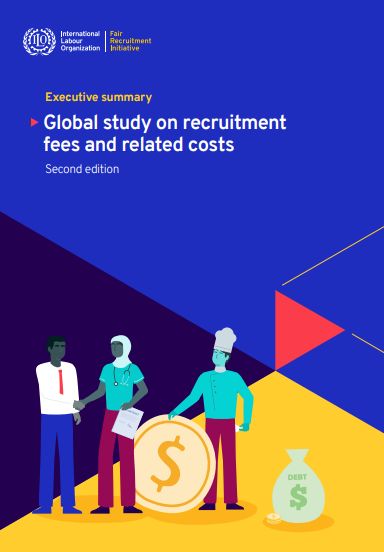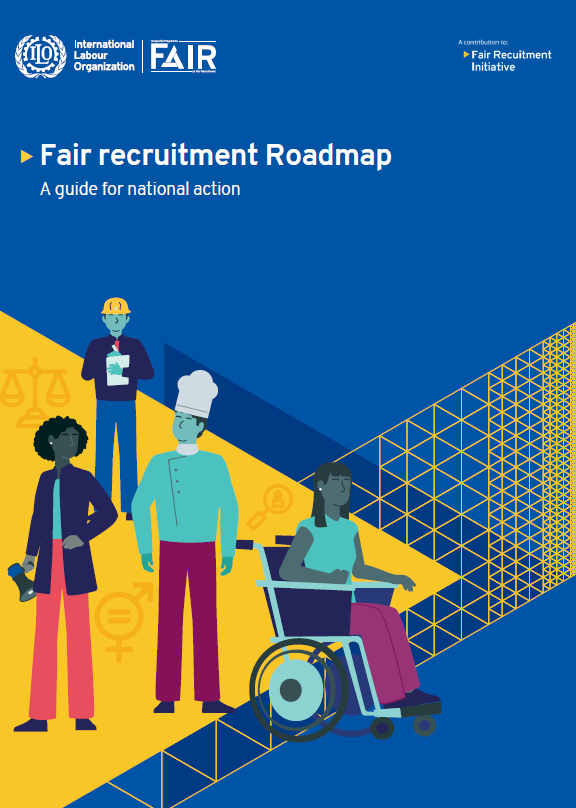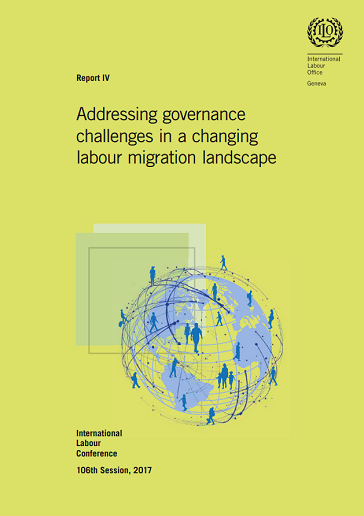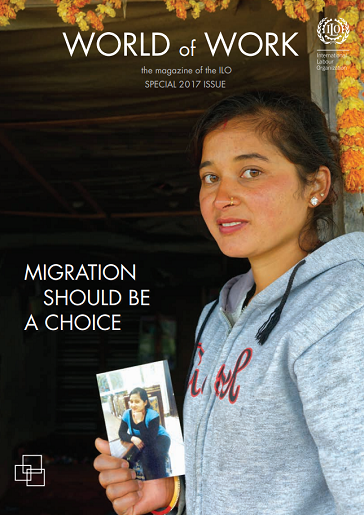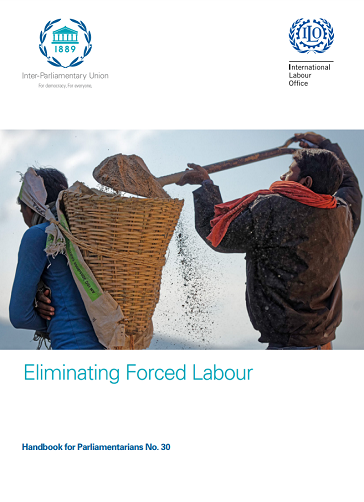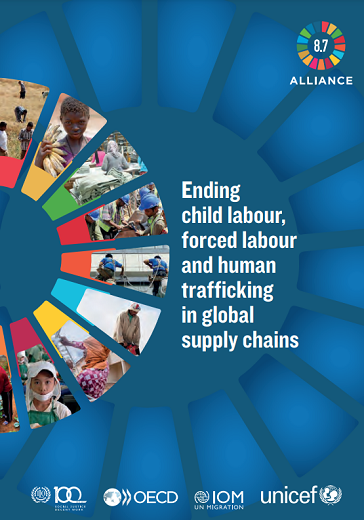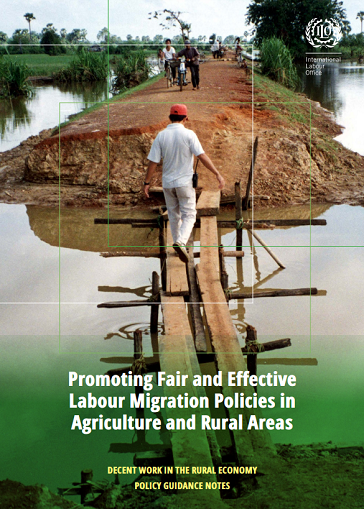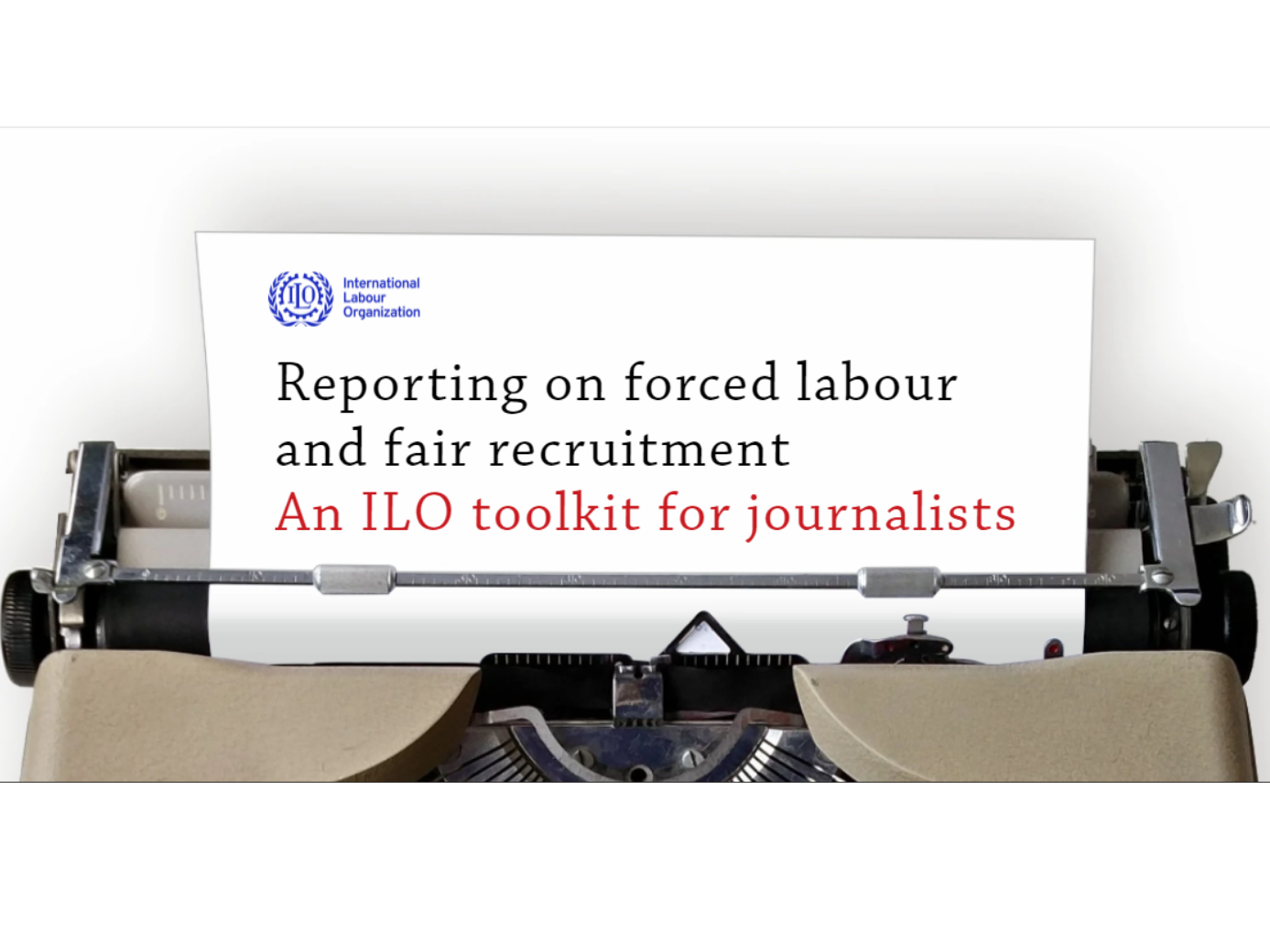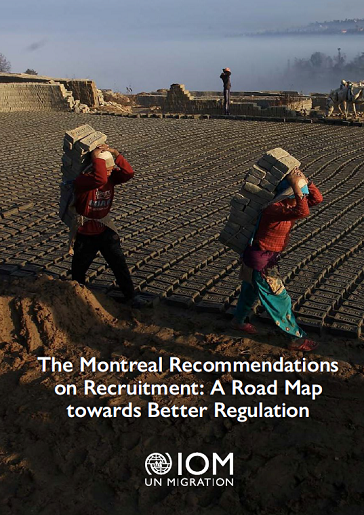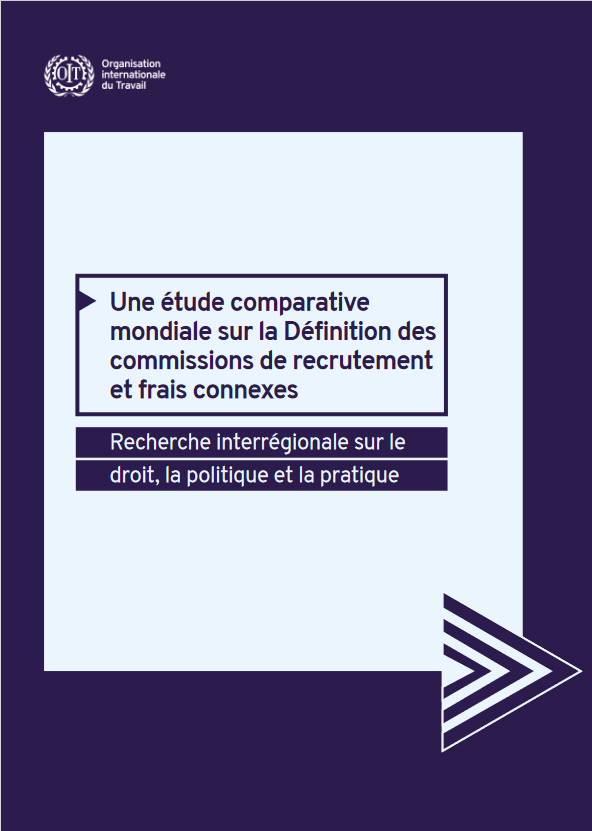Executive Summary - Global study on recruitment fees and related costs: Second edition
This executive summary synthesizes the key finding of the second edition of the Global Study. It presents the trends concerning recruitment fees and related costs for countries, businesses, trade unions, and other recruitment stakeholders, as well as key promising practices and considerations for the future.
The second edition of the Global Study on recruitment fees and related costs is a review of 110 countries across all five regions to document current regulatory approaches and experience on the recruitment fees and related cost. This global study further reviews international, regional, and bilateral frameworks on recruitment and labour migration and considers business-led, trade union, and multi-stakeholder initiatives regarding recruitment fees and related costs. It documents the progress made, challenges encountered, and regulatory gaps that need to be addressed in the five years since the adoption of the ILO Definition of recruitment fees and related costs.
This executive summary synthesizes the key finding of the second edition of the Global Study. It presents in a concise and easily digestible manner the regional trends concerning recruitment fees and related cost, noting important similarities in relation to prohibition or regulation of recruitment fees and costs, and sanctions regimes. It also presents the main findings regarding business-led, trade union and multistakeholder initiatives concerning recruitment fees and related costs, while noting promising practices and considerations for the future.
By examining the global landscape of recruitment practices, the study offers valuable insights into national context-specific regulatory conditions and practical realities that workers, labour recruiters, enterprises, and employers face regarding recruitment fees and costs. It specifically highlights the engagement of the ILO supervisory bodies with the topic of recruitment fees and related costs, showing the multi-faceted and cross-cutting nature of the issue.
Type of document :
Country/Region :
Year of publication :
Theme : ,
Fair recruitment Roadmap: A guide for national action
This roadmap is a practical step-by-step guide to assist national policymakers and recruitment stakeholders, including governments and social partners, in effectively implementing fair recruitment at the national level.
Type of document :
Country/Region :
Year of publication :
Theme : , , , , , ,
Addressing governance challenges in a changing labour migration landscape
This report aims to contribute to an informed and balanced discussion of migration and labour issues. It examines the role of the ILO and its constituents in achieving fair and effective governance of labour migration that benefits societies of origin and destination, protects the rights of migrant workers and their families, and enhances social cohesion.
Type of document :
Country/Region :
Year of publication :
Theme : , ,
World of Work magazine: Migration should be a choice
The 2017 edition of the World of Work magazine highlights themes discussed by the ILO’s 106th International Labour Conference (ILC), including labour migration and fair recruitment.
Type of document :
Country/Region :
Year of publication :
Theme : , , , ,
Eliminating forced labour: Handbook for parliamentarians No. 30
Effective legislation and regulations on recruitment processes, for both national and migrant workers, help to curtail forced labour and trafficking. Beyond adopting or amending legislation on recruitment, parliamentarians can request the adoption of implementing decrees and hold the government accountable for monitoring implementation. Promoting fair recruitment practices, and averting the occurrence or risk of forced labour through the recruitment process, must be a fundamental part of any forced labour prevention strategy.
This handbook, co-published with the Inter-Parliamentary Union (IPU), aims to help parliamentarians to make their contribution to global efforts to effectively combat the scourge of forced labour.
Type of document :
Country/Region :
Year of publication :
Theme : ,
Ending child labour, forced labour and human trafficking in global supply chains
Promoting fair recruitment is a critical priority in the context of both international and internal migration. As discussed in PART 1, a key finding of recent ILO research is that recruitment abuses – and in particular the payment of illegal recruitment fees and related costs – are one of the main ways in which forced labour and human trafficking enters supply chains.
The adoption of laws and regulations to help ensure that workers and jobseekers are not charged recruitment or related costs, or subjected to other recruitment-related abuses – addressed in the Global Compact for Safe, Orderly and Regular Migration and international legal standards – is therefore critical to broader efforts against forced labour and human trafficking.
Type of document :
Country/Region :
Year of publication :
Theme : , , , , ,
Promoting fair and effective labour migration policies in agriculture and rural areas
Migrant workers make an important contribution to the growth and development of rural areas, and more particularly the agriculture sector. However, they face pervasive decent work deficits, which include informality; a lack of opportunities for skills development and recognition, income security, social protection coverage and portability of benefits; and exposure to work-related accidents. Furthermore, they are vulnerable to forced and child labour, human trafficking and unethical recruitment, and – especially in the case of migrant women workers – experience discriminatory treatment.
The ILO endeavours to forge policies to maximize the benefits of labour migration for rural economies around the world, while ensuring the good governance of labour migration and the respect of human and labour rights.
Type of document :
Country/Region :
Year of publication :
Theme : , ,
Reporting on forced labour and fair recruitment: An ILO toolkit for journalists
This toolkit provides information and advice to media professionals on how to report accurately and effectively on forced labour and fair recruitment. The toolkit includes the Media-friendly glossary on migration.
This toolkit is available in: Arabic, English, French, Spanish.
The toolkit has been adapted to the national context in:
-
Nepal (English)
-
Nigeria (forthcoming)
-
Pakistan (English)
- Uganda (forthcoming)
-
Viet Nam (English, Vietnamese).
Click on each language to open the corresponding toolkit.
Type of document :
Country/Region : , , , , , , ,
Year of publication :
Theme : , ,
The Montreal recommendations on recruitment: A road map towards better regulation
This resource presents policymakers and regulators with practical guidance and ideas to improve regulation and oversight of international recruitment and protection of migrant workers. It covers a broad range of themes, including the following:
a) recruitment fees;
b) licensing and registration of labour recruiters;
c) inspections and enforcement;
d) access to grievance mechanisms and dispute resolution;
e) bilateral and multilateral mechanisms; and
f) migrant welfare and assistance.
The guidance results from a global conference held in Montreal, Canada, that brought together leading experts and practitioners from more than 30 countries around the world. It reflects an important milestone in global efforts to promote ethical recruitment.
Type of document :
Country/Region :
Year of publication :
Theme : , ,
Global Study on Recruitment Fees and Related Costs
A global study that examines the laws and policies of 90 countries, as well as numerous bilateral labour agreements and multi-stakeholder initiatives to identify the efforts Member States have made to regulate or prohibit recruitment fees and costs charged to workers. The global study supported the ILO’s adoption of the Definition of Recruitment Fees and Related Costs, which is to be read in conjunction with the ILO’s General Principles and Operational Guidelines on Fair Recruitment.
This Global Comparative Study on Recruitment Fees and Related Costs was prepared ahead of the Tripartite Meeting of Experts on Recruitment Fees and Related Costs, which took place in Geneva from 14 to 16 November 2018. It brings together the findings from five regional reports that examined 90 national government responses, 18 bilateral agreements and 12 multistakeholder initiatives. The analysis of findings provides a clearer picture of how Member States have addressed the issue of recruitment fees and related costs at the policy level. Overall, the report advances ILO’s work on promoting Fair Recruitment, in particular to reduce recruitment fees and related costs paid by workers.
Type of document :
Country/Region :
Year of publication :
Theme : ,
Subscribe to the Fair Recruitment Initiative Newsletter
Sign up to receive news delivered to your inbox.

